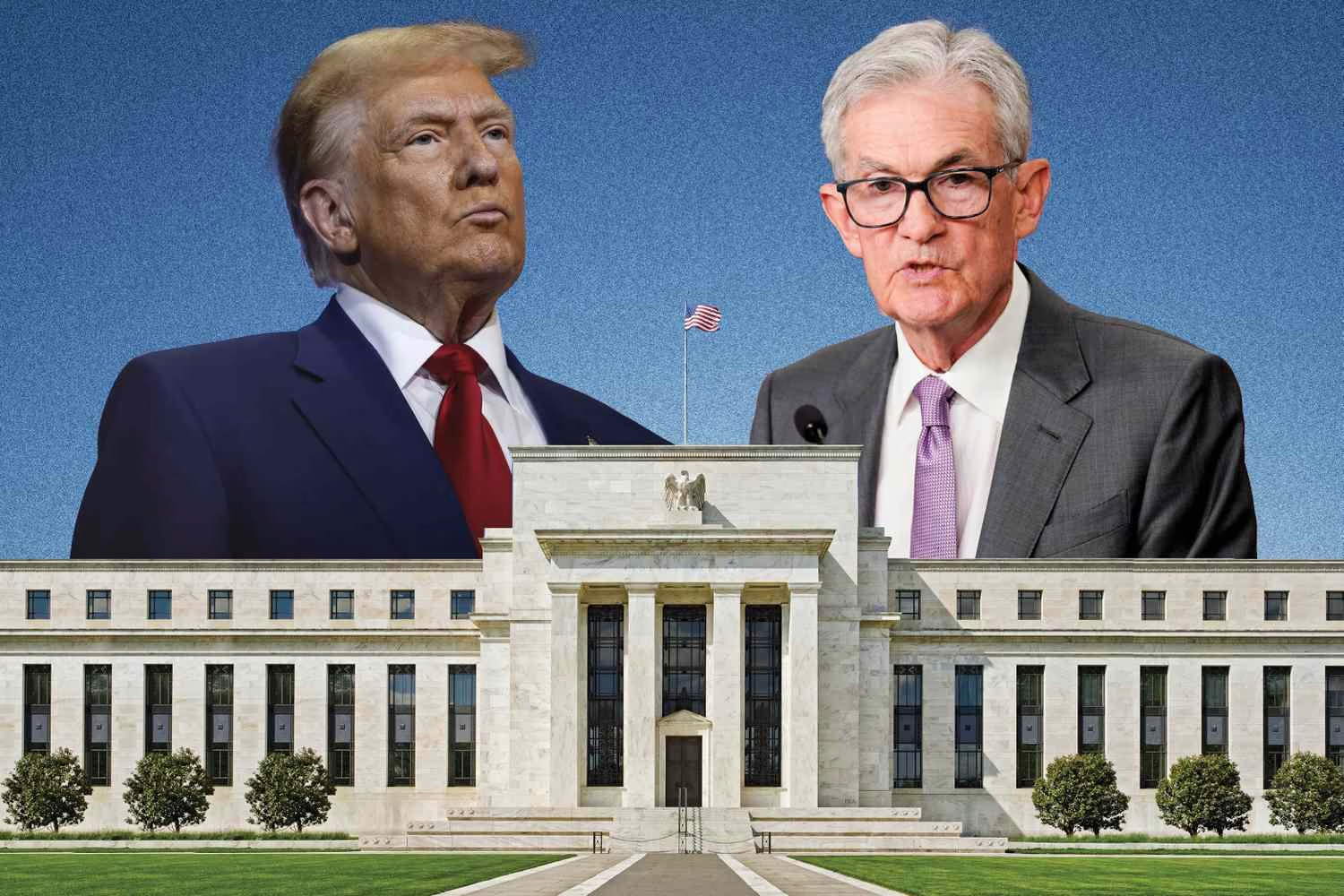The Federal Reserve is a powerful institution in global economics, and Jerome Powell’s role as its Chairman has been pivotal in guiding the U.S. economy. But what would happen if former President Donald Trump, or a future president, decided to fire Powell? Given Trump’s history with the Federal Reserve and Powell’s tenure marked by turbulent economic times, it’s not an outlandish scenario to consider.
Here’s what might unfold if Trump or any U.S. president were to remove Powell from his position:
1. Market Volatility and Immediate Panic
The very first reaction from the financial markets would likely be heightened volatility. Jerome Powell has been at the helm during crucial periods of economic recovery, particularly post-pandemic. The abrupt removal of such a key figure would send shockwaves through Wall Street, causing stock prices to plummet as investors question the future direction of U.S. monetary policy. In such a politically charged environment, markets would react nervously, leading to uncertainty.
2. Loss of Credibility in the Fed
One of the most significant consequences would be the potential erosion of confidence in the Federal Reserve. Powell has long been seen as an independent leader, even when his decisions didn’t align with Trump’s preferences. If Trump or any future president were to fire him, it could be perceived as politically motivated interference. The Fed’s credibility could suffer, especially if markets believe that its leadership is no longer immune to political pressures.
3. Reappointment of a New Fed Chairman
If Trump fired Powell, he would need to nominate a new Chairman, subject to Senate confirmation. The choice of the new Fed Chairman would be closely watched and heavily scrutinized. A more dovish or hawkish figure would lead to speculation on whether they would tighten or loosen monetary policy, further affecting investor sentiment. The uncertainty of who would be chosen and the potential for a divisive confirmation process could add another layer of complexity to the markets.
4. Potential Interest Rate Shifts
Powell has faced immense pressure from Trump during his tenure, with the former president publicly criticizing the Fed’s rate hikes. If a new chairman took over, the potential for a shift in interest rate policy could be on the table. If the new appointee pursued a more aggressive interest rate stance or reversed course on tightening, it could have ripple effects on global economies. Similarly, if the new chair took a more dovish stance, it could reignite fears of inflation, altering investment strategies worldwide.
5. Impact on Global Trade and Investments
The U.S. Federal Reserve plays a critical role in the global economic system. Any political instability in such an important institution could cause volatility in global trade. The strength of the U.S. dollar, foreign exchange rates, and investment flows would likely be impacted. Markets across the world would take notice as the ripple effect could extend from New York to Tokyo, London, and beyond.
6. Long-Term Economic Uncertainty
In the longer term, the unpredictability surrounding the Fed’s leadership could stifle business and consumer confidence. If the political environment becomes entangled with monetary policy, businesses may hesitate to make major investments, and consumers might hold off on spending. Economic instability could arise, leading to slower growth and higher unemployment.
7. Trump’s Economic Legacy in Question
If Trump were to fire Powell, it would mark another chapter in his complicated economic legacy. The public’s perception of Trump as a disruptor could be further solidified, but at the cost of heightened economic uncertainty. For his supporters, it may reinforce his position as a strong, decisive leader. However, for critics, it may confirm fears of an unstable and unpredictable economic environment.
8. The Fed’s Response: A Shift in Policy?
In response to such a high-profile removal, the Federal Reserve may adopt new strategies to assure investors and citizens of its autonomy. It may decide to double down on its policy of economic stabilization or signal a shift in its approach to interest rates, quantitative easing, or even fiscal policy. Such a response would have significant consequences, especially for sectors like real estate, tech, and consumer goods.
9. Potential Legal and Constitutional Challenges
Firing Powell may not be as simple as Trump desires. Legal challenges could follow, especially if Powell’s firing is perceived as a violation of the Federal Reserve’s independence. Critics of the move might argue that such interference violates the spirit of the law that protects the autonomy of the central bank. These challenges could tie up the courts and bring uncertainty for months or even years.
10. Global Repercussions: Spillover Effects on Emerging Markets
Emerging markets that rely on the strength of the U.S. economy and the stability of its financial systems could be hit hard by such a move. Countries with significant dollar-denominated debt, like many in Latin America and Africa, could see increased borrowing costs. If U.S. monetary policy were to become unpredictable or unstable, emerging markets would face challenges from a tightening of global liquidity and higher borrowing costs.
Conclusion
Firing Jerome Powell would send a jolt through global markets, with consequences extending far beyond the U.S. borders. It would likely create an environment of uncertainty, undermining investor confidence, shaking markets, and potentially destabilizing both the U.S. and global economies. While the move would certainly be part of Trump’s larger political agenda, the economic fallout would be far-reaching and long-lasting.
Ultimately, the world would watch closely, and only time would tell if such a dramatic decision would lead to chaos or a new economic era. The stability of the world’s largest economy is far too important to gamble with, and the impact of such a decision would reverberate for years to come.
















